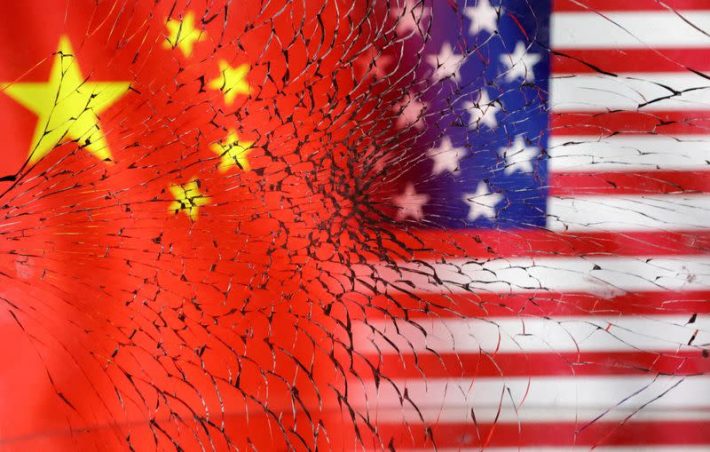China announced a range of different measures on Tuesday targeting US businesses such as Google, plus more in other sectors almost immediately after new Trump’s tariffs on Chinese goods took effect.
Beijing hit back with 15% tariffs on US coal and natural gas, plus measures on some autos in a rapid response to the duties President Trump put on Chinese goods days earlier, ratcheting up trade tensions between the world’s two biggest economies.
Several US corporations such as PVH Corp, the holding company for brands like Calvin Klein and Tommy Hilfiger, plus US biotechnology firm Illumina were put on Beijing’s “unreliable entity” list.
ALSO SEE: Japan May do Pipeline, Energy Deals to Appease Trump
It said the two companies took what it called “discriminatory measures against Chinese enterprises” and “damaged” the legitimate rights and interests of Chinese companies.
China’s State Administration for Market Regulation said Google was suspected of violating the country’s anti-monopoly law and an investigation was initiated in accordance with the law. It did not provide further details on the investigation or on what it alleged Google had done to breach the law.
Google products such as its search engine are blocked in China and its revenue from there is about 1% of global sales. It still works with Chinese partners such as advertisers.
In 2017, Google announced the launch of a small artificial intelligence centre in China. But the project was disbanded two years later and the firm does not conduct AI research in China, according to a blog posting.
Companies added to the blacklist can be subject to fines and a broad range of other sanctions, including a freeze on trade and revocation of work permits for foreign staff.
Google, PVH and Illumina did not immediately respond to requests for comment outside regular US business hours.
PVH had already been under scrutiny from Chinese regulators over “improper” conduct related to the Xinjiang region.
Moves suggest an option to back down
“These moves are warnings that China intends to harm US interests if need be, but still give China the option to back down,” Capital Economics said in a note.
“The tariffs could be postponed or cancelled before they come into effect… The probe against Google could conclude without any penalties.”
China also announced 10% tariffs on imports of US farm equipment that could impact firms such as Caterpillar, Deere & Co and AGCO, as well as a small number of trucks and big-engine sedans shipped to China from the United States.
That could apply to Elon Musk’s Cybertruck, a niche offering Tesla has been promoting in China, as it awaits regulatory clearance to begin sales.
China’s Ministry of Industry and Information technology designated the Cybertruck as a “passenger car” in a posting in December that was quickly deleted.
If the Cybertruck was designated as an electric truck, Tesla would face a 10% tariff on any future imports from its factory in Texas. Tesla had no immediate comment.
The new tariffs on US products will start on February 10, the ministry said.
The announcements made on Tuesday ramped up trade restrictions between Beijing and Washington that had been largely limited to the tech sector under the administration of former US President Joe Biden, which sought to restrict China’s access to high-end semiconductors.
China said in December it had launched an investigation into Nvidia over a suspected violation of the country’s anti-monopoly law, a probe widely seen as a retaliatory shot against Washington’s latest curbs on the Chinese chip sector.
Intel’s products sold in China were also called for a security review late last year by an influential Chinese industry group.
- Reuters with additional editing by Jim Pollard
ALSO SEE:
Taipei to Consider Trump Threat of Big Tariffs on ‘Foreign Chips’
China Seen Taking on More Debt to Counter Trump Tariffs
Yen Rises After Bank of Japan Lifts Rates to Highest Since 2008
Trade Wars Would be ‘Catastrophic’ for World Economy: WTO
SoftBank, UAE’s MGX Join $500bn Data Centre Deal With OpenAI
Trump Day 2: 10% China Tariffs by Feb 1, EU to Also ‘Get Fairness’
























